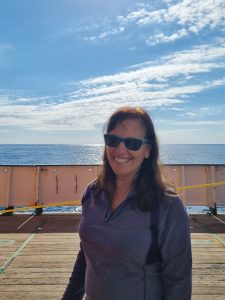
Words from MERCI’s Director, Prof. Ilana Berman-Frank
Israel is essentially an island and the Mediterranean Sea is our lifeline – stretching ~180 km from the northern to the southern borders (and with the exclusive economic zone adding an area ~ 22000 square kilometers). Today, we rely on the Mediterranean for our drinking water, for energy in expansive deep-water fields, for food, and for the transport of >99% of our imports and exports. The unique Mediterranean ecosystem is also home to ~ 12000 different species forming marine food-webs that support human economies providing nutrition and natural marine products.
Yet – this lifeline is threatened. The Mediterranean Sea region is one of the world’s most sensitive and responsive regions to climate change and extreme climate effects due to human impacts and the increasing footprint of human-based activities in coastal areas. Overfishing, agricultural, and industrial pollution, marine litter, degradation of critical habitats (> 500 million tourists per year by 2025) and a huge number of invasive or alien species cause a rapid decline in native species and threatens biodiversity.
MERCI is a diverse and unique partnership focusing on creating and facilitating cutting-edge marine science capacities for Israeli scientists working on the Mediterranean Sea.
The MERCI partnership addresses the array of scientific, technological, economic, and environmental challenges and opportunities we are facing within the Mediterranean Sea and along Israel’s coastline. Our overarching goals include:
- Accelerating and supporting marine research on a national level.
- Identifying and prioritizing knowledge gaps and challenges surrounding Mediterranean Sea research that would benefit from joint investigations.
- Allowing access to complex marine-based research infrastructures.
- Enabling larger collaborations for major marine research including collaborations with industry/NGO’s/government to better understand the Mediterranean Sea ecosystem.
- Facilitating education and training for the next generation of marine scientists working on the Mediterranean Sea.
- Providing a wide range of accessible scientific data required for stakeholders and helping promote a strong scientific foundation of Mediterranean Sea research to the decision makers and the public.
Prof. Ilana Berman-Frank, Director, Mediterranean Sea Research Center of Israel


